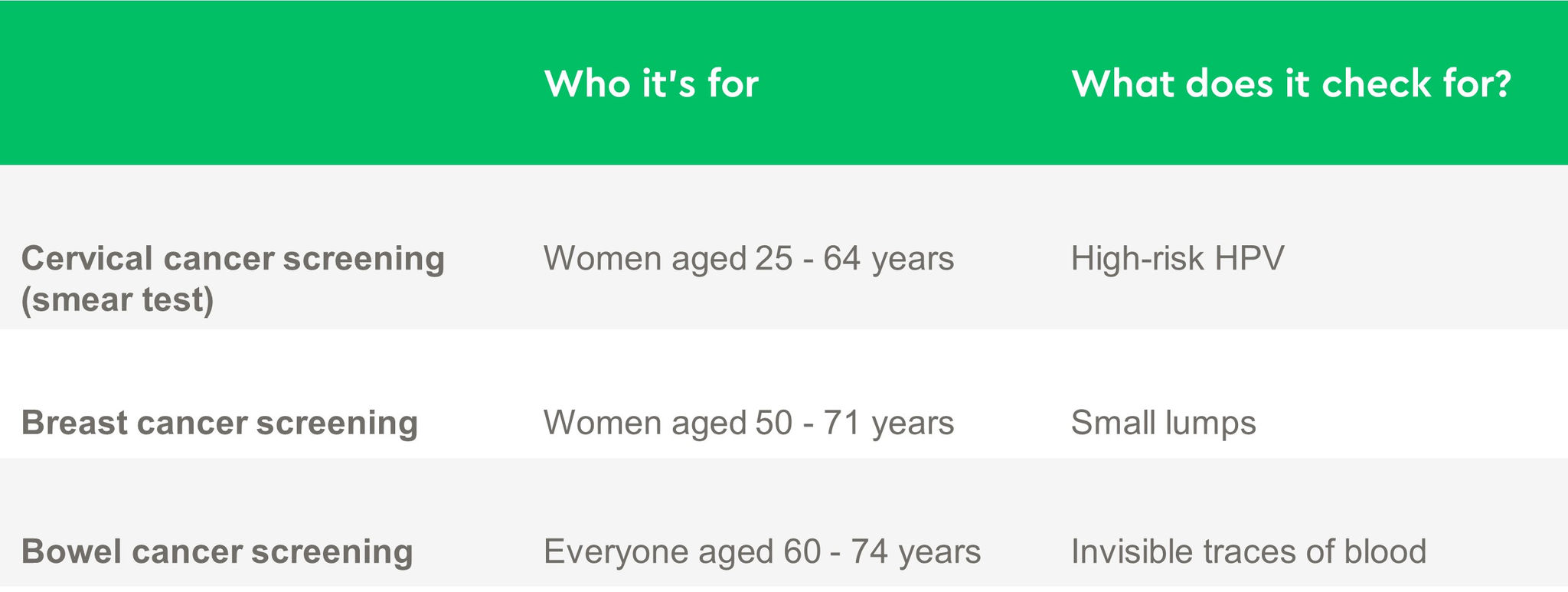Blood tests for cancer diagnosis - myths vs facts
Blood tests can detect, diagnose and monitor certain types of cancer. What blood tests can tell us about cancer depends on the type of test and cancer
5 minute read
Scientists are currently developing blood tests which can screen for many types of cancer at once. But for now, blood tests for cancer are mostly used to detect the possibility of specific cancers and need to be considered alongside other tests.
Learn the facts of how blood tests are currently used to diagnose cancer.
Does cancer show up in routine blood work?
Myth: A routine blood test will show if you have cancer
Fact: A routine blood test is a broad set of checks which your GP might carry out during a check-up for specific health concerns.
An abnormal result on a routine blood test can be a sign of cancer, but a normal result doesn’t rule out cancer. That’s because not all types of cancer show up this way.
Routine blood tests which can show signs of cancer include:
- Full blood count
- Basic metabolic panel
- Comprehensive metabolic panel
- LDH level
- Serum Immunoglobulins
If you get an abnormal result in a routine blood test, what happens next depends on the results. For example, the blood test could show:
- High/low levels of red blood cells
- High/low levels of white blood cells
- High calcium levels
Your doctor will consider the results along with your risk of cancer, including your age, family history and any symptoms before deciding next steps. This might be further tests to rule out cancer and other disease, as well as tests which can pinpoint the specific problems causing your abnormal results.
What cancers are detected by blood tests?
Myth: A blood test can diagnose cancer on its own.
Fact: Many cancers cause hormonal and metabolic changes that are detected by a blood test, known as tumour markers. But usually, a blood test on its own isn’t enough for a diagnosis. The results could be caused by other conditions that aren’t cancer. Your doctor will usually look at the results along with other types of tests.
Sometimes blood tests also help to see whether your cancer treatment is working.
Blood tests are part of the diagnosis pathway for several common cancers, including blood cancer, prostate cancer, and ovarian cancer.
Tests for blood cancer
Blood tests help diagnose blood cancer, including what type you have, such as:
If your results show signs of blood cancer, you may need to have other tests like a bone marrow biopsy, a scan, and genetic test. Together, these create a picture of your cancer, including what type it is, how advanced it is, and whether it has spread. This helps to choose the best treatment for you.
Blood test for ovarian cancer
If there are problems with your ovaries, you might be offered a CA-125 blood test. This test looks for tumour markers, which are small chemicals released by cancers. If your doctor is worried about your blood test results, you may need a scan or a biopsy to investigate whether ovarian cancer is present.
Blood test for prostate cancer
A prostate-specific antigen (PSA) test is a blood test commonly used to measure your risk of prostate cancer. You might be offered this if you have prostate symptoms like trouble peeing or if you’re in a higher-risk group.
If your blood test shows high levels of PSA, you may need an MRI scan or a biopsy, where a small sample of your prostate is removed for testing.
Prostate exams are one of several important health check-ups for men over 50.
If my blood tests are normal, can I have cancer?
Myth: Blood tests can completely rule out cancer
Fact: If your doctor tells you that you do not have cancer, then you usually don’t need to worry. However, no blood test is 100% accurate. If your symptoms change, get worse, or you feel worried, book another appointment. You can ask to see a different doctor to get a second opinion.
When should I get tested for cancer?
There are two types of cancer testing. Screening is when you’re tested for signs of cancer even though you don’t currently have symptoms. It can help catch cancer early so that you have the best treatment options.
If you have possible symptoms of cancer, you may be offered an appointment with a specialist or diagnostic tests.
Screening for cancer by age
In England, there are three national cancer screening services, which are offered to specific age groups:

Depending on your age, family history and risk factors like smoking, you may be screened for other types of cancer too.
Learn more about when, where and how to get tested for cancer.
Warning signs of cancer
There are many types of cancer, which means there are lots of possible symptoms. Cancer can cause specific changes in the area affected, such as a lump or pain, or general symptoms like tiredness and weight loss.
Most signs of cancer are also symptoms of less serious conditions. Having a symptom does not mean you have cancer, but it’s better to be sure. Speak to a doctor if you have any of these unexplained symptoms:
- Lumps, rashes or bruising
- Pain
- Indigestion, nausea or vomiting blood
- Changes in bodily functions (like going to the toilet)
- Cough lasting more than 3 weeks
- Shortness of breath or chest pain
- Tiredness
- Weight loss
- Loss of appetite
At GenesisCare, if you’re worried about symptoms or your cancer risk, we have comprehensive diagnostic clinic services offering you the appropriate tests and scans for your symptoms and medical history.
You can get seen quickly at our one stop breast clinics; urology clinics and rapid access haematology service where you don’t need a referral to see one of our leading consultants.
There you’ll get relevant tests and scans, such as a mammogram to check for breast abnormalities or PSA blood test for a prostate check-up, as well as a consultation with a specialist.

